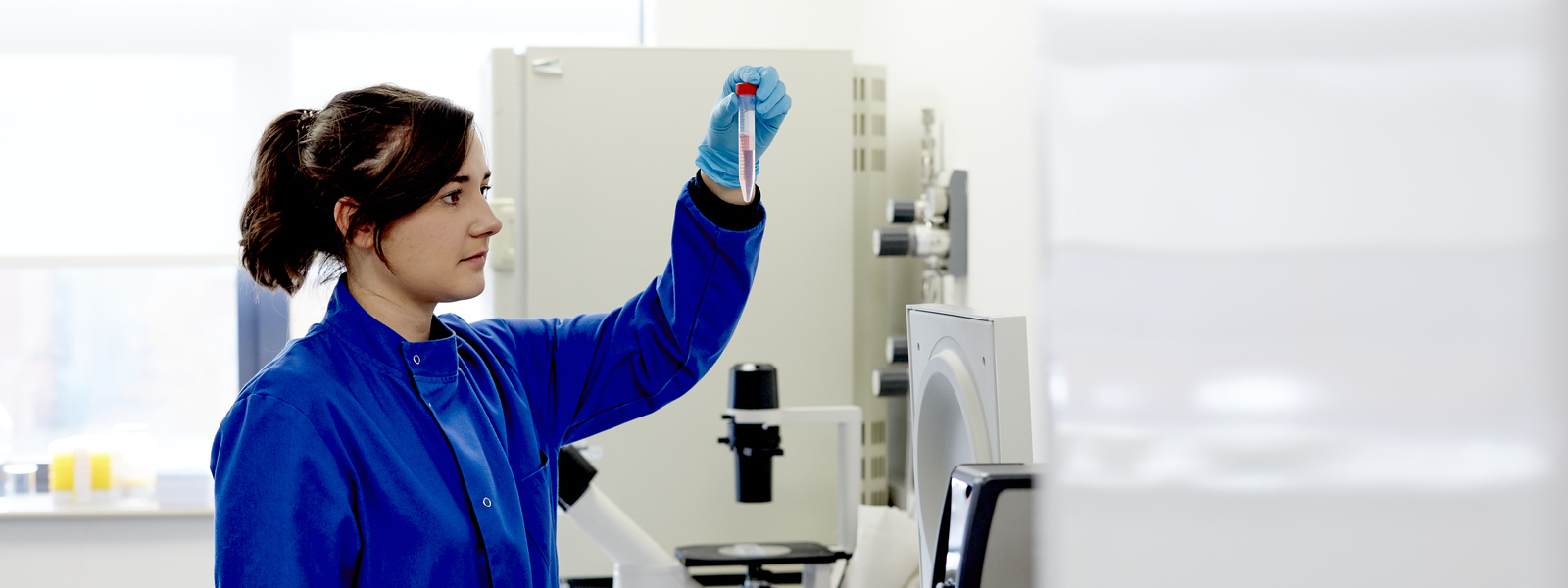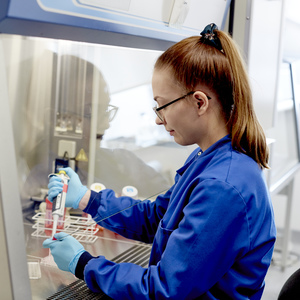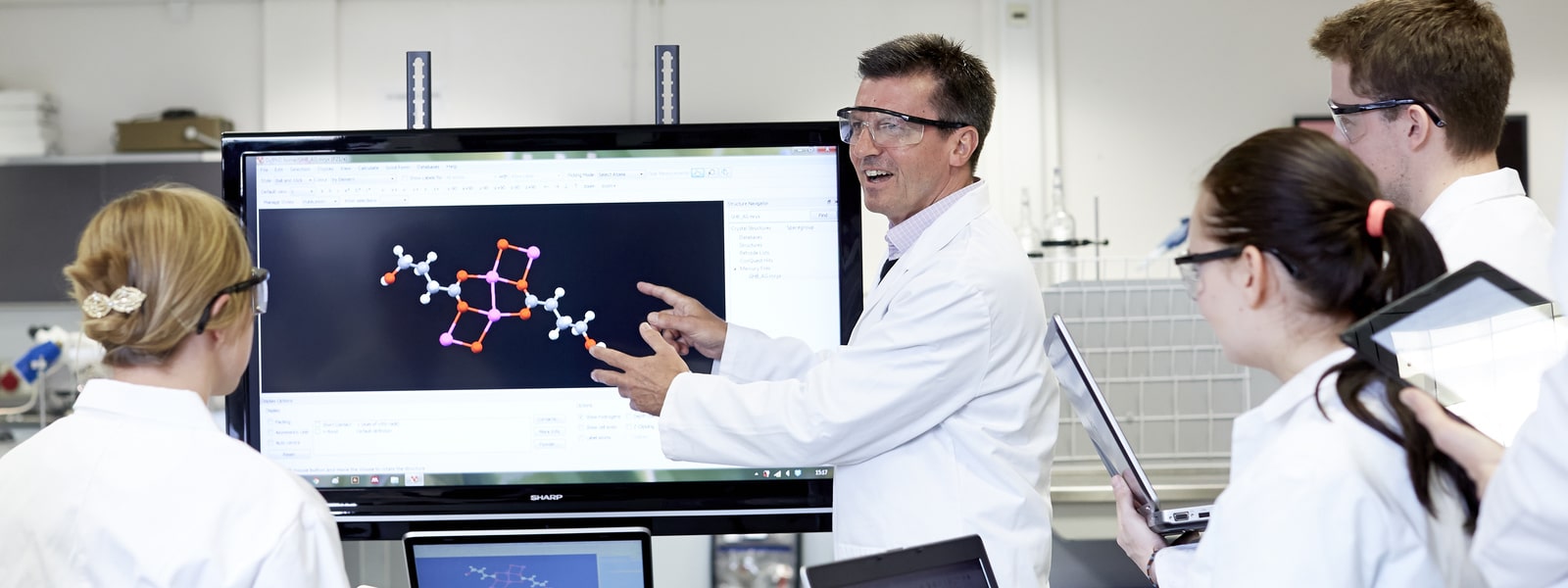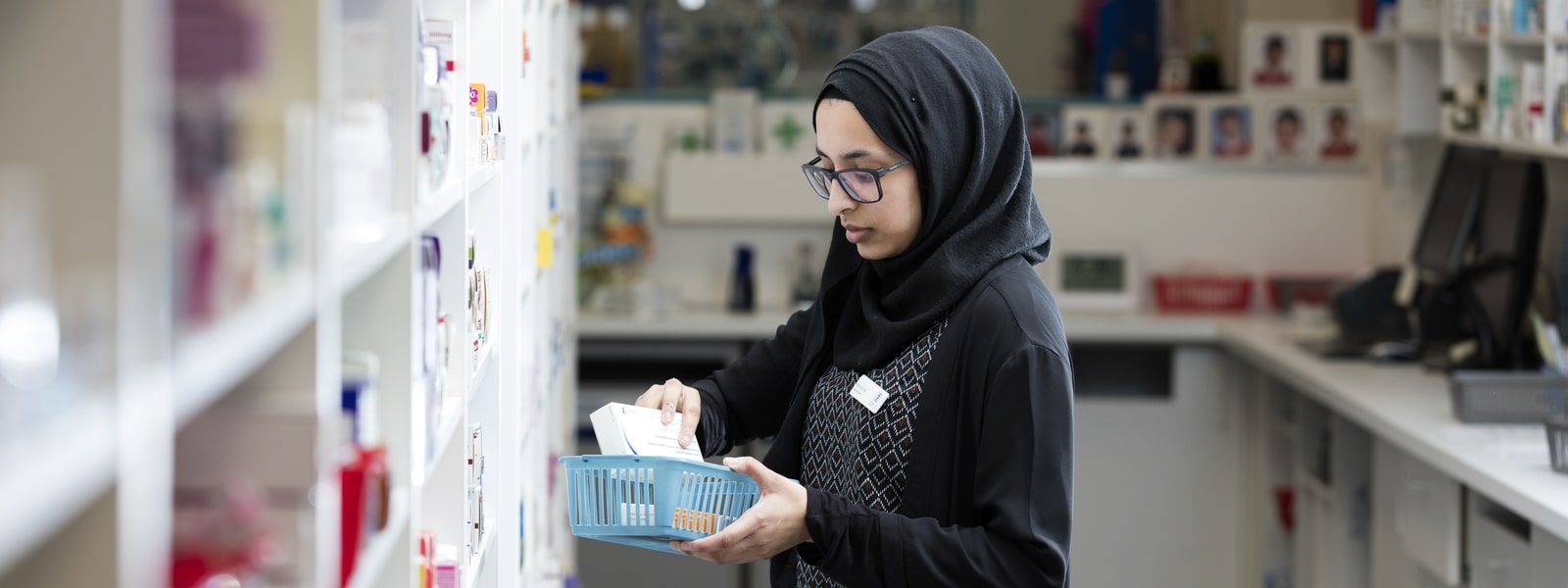Module Overview
This module is designed to provide students with the underpinning knowledge related to the analytical process, which is later applied to further modules in the programme. Secondly, it introduces the theoretical principles, instrumentation, automation, and application of the principal separation techniques. Thirdly, it presents an essential suite of analytical tools utilised for inorganic analyses and speciation.
Module Overview
This module covers the most advanced techniques in analytical chemistry and their use, focusing on category A techniques providing structural information and as such utilised for unequivocable identification. The aim of the module is to provide students with the opportunity to develop the advanced knowledge required to support level 3 modules, and to develop the practical skills and independent thinking necessary for all future practical applications.
Module Overview
This module will aim to integrate the process of drug discovery and target selection in relation to therapeutic area and how drugs are formulated and delivered to the target. Learning will be in the context of examples of drugs, from discovery to their registration or attrition.
Module Overview
This module aims to integrate the process of drug development in relation to the way in which a dosage forms are formulated and delivered to the target. Learning will be in the context of examples of dosage form, drug delivery route and underlying formulation, particle design, physical chemistry, and colloid science.
Module Overview
This module is concerned with the study of the mechanisms by which drugs interact with biochemical, cellular, and physiological systems.
The module aims to:
- provide an introduction to key pharmacology principles
- provide a detailed knowledge of the mechanisms of actions of selected drugs
- develop a critical appreciation of the importance and relevance of pharmacology in the treatment of diseases
- develop an understanding of the principles of toxicology and drug overdose
Module Overview
This module provides an overview of the cellular and molecular basis of the immune response in health and human diseases. The structure, function and complex mechanisms of host defence by B- and T-Cells will be discussed. Students will evaluate the role of inflammatory mediators, soluble effectors, and cellular cytotoxicity in inflammation and immunity.
Module Overview
The module provides an overview of medical microbiology including bacteria and viruses, both through study of the biology of specific microorganisms, but also through the study of diseases of a variety of body systems. The module considers the transmission of infectious disease, including a discussion regarding situations of medical environments, and control and treatment of infectious diseases.
Module Overview
Pharmaceutical Science is a multidisciplinary programme with many different sciences and skills pulled into one discipline and this module is designed to bring all learning together from single discipline modules and highlight the relevance to the pharmaceutical industry. This module will advance understanding and application of key skills required to work in the Pharmaceutical Science Industry such as, statistics, mathematics, data handling, ethics and critical analysis. Case studies from the pharmaceutical sector will be used to highlight the key advantages of having an understanding of all the elements of the programme especially these key skills.
Module Overview
The University has a strong commitment to providing academic programmes with high vocational relevance, which is maintained through working links with local, national and international organisations and, in particular, through student work placements.
The Placement Year aims to give students a continuous experience of full-time work within an organisation. It should be a three-way co-operative activity between employer, student and University from which all parties benefit. It is more than simply obtaining work during a gap in study – work placements should enable students to experience at first hand the daily workings of an organisation while setting that experience in the broader context of their studies.
The Placement Year constitutes a work placement during an academic year, funded by full-time paid employment taking place between Level 2 and Level 3. The minimum duration of placement is 39 weeks.
Students wishing to undertake the work placement year must successfully complete the Level 2 of their programme.
All students on the Placement Year as part of their full-time undergraduate study will remain enrolled with the University during the period of placement and receive support. Students originally enrolled on 3 year programmes wishing to transfer to the 4 year programme must do so before the start of their placement, should gain the consent of their funders, where appropriate, and advise the University of their intention before the September enrolment.
Module Overview
The School believes that an option to study overseas is a valuable educational opportunity for our students. Provision of this option supports the educational aims of the School of Pharmacy and enhances the distinctiveness of its degrees at Lincoln. The optional year is intended to:
- enable students to benefit from studying within a cross cultural environment;
- expose students to a wider academic and cultural experience;
- enhance their future employment opportunities;
- by increasing their cultural and professional mobility.
This module is optional for students within the School.
Study Abroad is a year long module which enables students to spend a year studying abroad at one of the University’s approved partner institutions. Eligible students must have completed their second year of study to a satisfactory standard and successfully completed the application process for the year abroad.
During the year spent abroad, students share classes with local students and study on a suite of locally-delivered taught modules which have been approved in advance by the University. Upon their return, as part of the assessment for this modules, students are required to critically reflect upon their experience of living and studying in a different cultural environment and the skills acquired.





